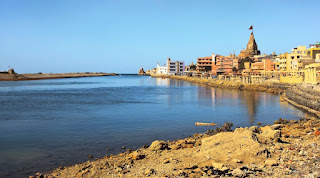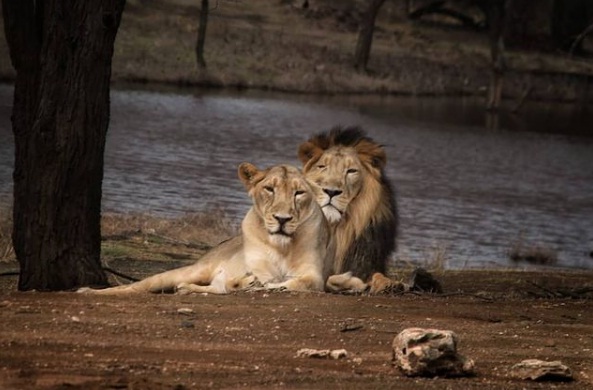Dwarka City
The history of Dwarka city is rooted in ancient Indian civilization and mythology. Dwarka is an important pilgrimage site and holds significant religious and historical importance in Hinduism. Here is an overview of the history of Dwarka city:
Mythological Origins : According to Hindu mythology, Dwarka was the capital city of Lord Krishna's kingdom. Lord Krishna is considered an incarnation of Lord Vishnu, and his association with Dwarka makes the city a sacred place for Hindus. The ancient Hindu scriptures, such as the Mahabharata and the Puranas, mention Dwarka as a prosperous and magnificent city ruled by Lord Krishna.
Lord Krishna's Rule : Lord Krishna is believed to have established Dwarka as his capital after leaving Mathura. He transformed the once barren and uninhabited land into a thriving city. Dwarka became a center of trade, culture, and spirituality during Lord Krishna's rule.
The Mahabharata : The epic Mahabharata narrates the story of Dwarka and Lord Krishna's role in the great Kurukshetra war. Dwarka served as a key strategic location, and Lord Krishna played an instrumental role in supporting the Pandavas, the protagonists of the Mahabharata, during the war.
Submergence of Dwarka : As per mythology, after Lord Krishna's departure from the mortal world, Dwarka was submerged under the Arabian Sea. This event, known as the "Dwarka Deluge" or "Dwarka Pralaya," is described in the ancient texts and is considered a significant turning point in the history of the city.
Archaeological Excavations : In the 1980s and 1990s, the Archaeological Survey of India (ASI) conducted underwater excavations off the coast of present-day Dwarka. These excavations revealed remnants of ancient structures, including walls, fortifications, and artifacts, providing evidence of a once-flourishing city. These findings have sparked further research and speculation about the historical existence of Dwarka.
Dwarkadhish Temple : The Dwarkadhish Temple, also known as the Jagat Mandir, is a major attraction in Dwarka. It is believed to be located on the site of Lord Krishna's original residence. The temple has undergone several renovations over the centuries and stands as an important place of worship for Lord Krishna's devotees.
Pilgrimage Site : Dwarka is revered as one of the Char Dham pilgrimage sites in India, along with Puri, Badrinath, and Rameswaram. Devotees from all over the world visit Dwarka to seek blessings, offer prayers, and immerse themselves in the spiritual aura associated with Lord Krishna.
The history of Dwarka city is a blend of mythology, ancient texts, and archaeological discoveries. It continues to be a place of immense religious significance, attracting millions of devotees and history enthusiasts who seek to explore its rich historical and cultural heritage.
To Reach Dwarka :
By Air :
The nearest airport to Dwarka is the Jamnagar Airport, which is approximately 130 kilometers away. From the airport, you can hire a taxi or take a bus to reach Dwarka.
By Train :
Dwarka has its own railway station called the Dwarka Railway Station, which is well-connected to major cities in Gujarat and other parts of India. Regular trains operate to and from Dwarka, making it a convenient mode of transportation.
By Road :
Dwarka is well-connected by road networks, and you can reach the city by bus or private car. State-run buses, as well as private buses, operate from various cities in Gujarat to Dwarka. You can also hire a taxi or drive your own vehicle to reach Dwarka.
- From Ahmedabad : If you are coming from Ahmedabad, you can travel by road or take a train to reach Dwarka. The distance between Ahmedabad and Dwarka is approximately 440 kilometers, and it takes around 8-9 hours by road.
- From Rajkot : Rajkot is another major city close to Dwarka, and it is well-connected to Dwarka by road and rail. The distance between Rajkot and Dwarka is around 230 kilometers, and it takes about 4-5 hours to reach Dwarka by road.



0 Comments